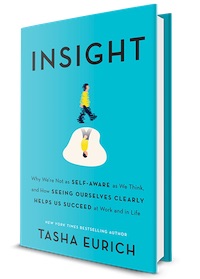 By Cathy Gassenheimer
By Cathy Gassenheimer
Executive Vice President
Alabama Best Practices Center
About a year ago, in October during the first full “Covid-driven” school year, I shared some fact-based inspiration and advice from organizational psychologist and leadership consultant Dr. Tasha Eurich. My sharing was drawn from one of the favorite emails that land in my inbox – her always encouraging monthly newsletter The Insight Bulletin. We titled the resulting blog post “3 Scientifically Supported Strategies to Beat Burnout.”
More than a year later, many of us (maybe most of us) are still feeling discouraged and overwhelmed at times, wondering if we can really do this difficult work any longer. Omicron is tearing through schools. Talking with leaders this past week was heartbreaking. No subs available. Some were in classrooms standing in for teachers. Two principals had moved their “desk” to the hallway to help with hall duty. One assistant principal was down for the third time with Covid. Other APs were working as acting principals.
If we are having moments of hopelessness right now, it’s not surprising.
 This week when I received Tasha Eurich’s latest newsletter, with the topic line “Questioning Our Self-Limiting Beliefs,” I opened it immediately. I was soon immersed in Tasha’s take on a condition she believes most leaders have experienced, whether they realize it or not.
This week when I received Tasha Eurich’s latest newsletter, with the topic line “Questioning Our Self-Limiting Beliefs,” I opened it immediately. I was soon immersed in Tasha’s take on a condition she believes most leaders have experienced, whether they realize it or not.
She frames her reflection with an interesting story about Kayla, the young woman who drove her to and from a recent speaking engagement in Utah (subscribe to her newsletter to read the complete tale). Here is the core of what Eurich has to tell us:
I see self-limiting beliefs – negative judgments about our future selves – everywhere: the executives I coach, my friends and family, even myself. When we say, “I could never do X” or “I’m just bad at Y,” it often flies in the face of past evidence.
In the world of self-awareness, it’s the opposite of overestimation. By taking self-limiting beliefs for granted, we underestimate ourselves. The result: we opt out of challenges, doubt our power, and rob ourselves of the sweet satisfaction of success.
With 2021 finally behind us, many people are working on new resolutions and goals. We might also be overwhelmed, exhausted, or doubtful. And, like Kayla discovered, seeking disconfirming evidence for our self-limiting beliefs – on our own or with the help of a loved one – might reveal we’re far more powerful than we realize.
… This auspicious meeting (with Kayla) was a timely reminder of an important truth. When things get tough, we might forget our true power. In rediscovering moments when we’ve risen to the occasion – be they big or small – we can start to take it back.
We’re living in an unprecedented situation where we are very likely to feel powerless at times. I found Tasha Eurich’s insightful suggestion – that we deliberately recall instances of great personal resilience and so reaffirm our true power – to be restorative. You might, too.
Reaching out to others who understand
 One of my strategies when I’m feeling discouraged or worried about the challenges ahead is to seek out wise voices. Thanks to the internet, good advice and inspiration is truly just a click away – not only from the self-help experts (and there are many good ones who rely on sound behavioral research) but in stories and news reports featuring leaders who are hanging on to their empathy and commitment as they model optimism – searching for ways they can collaborate and make it through each day toward a better tomorrow.
One of my strategies when I’m feeling discouraged or worried about the challenges ahead is to seek out wise voices. Thanks to the internet, good advice and inspiration is truly just a click away – not only from the self-help experts (and there are many good ones who rely on sound behavioral research) but in stories and news reports featuring leaders who are hanging on to their empathy and commitment as they model optimism – searching for ways they can collaborate and make it through each day toward a better tomorrow.
Here’s a sample of recent articles that may be meaningful to you.
► Principals intend to keep a positive attitude in 2022 as they focus on relationships
(District Administration magazine)
This story posted in mid-January draws on interviews with principals across the USA, describing steps they are taking to maintain viable schools in the face of waves of pandemic-related challenges (1/14/2022).
► Grief has engulfed the learning environment. Here’s what can help
(Education Week)
This EdWeek article by Brittany R. Collins, author of Learning from Loss: A Trauma-Informed Approach to Supporting Grieving Students (Heinemann, 2021) considers “the environmental, interpersonal, and curricular structures at play in your learning environment and how you might infuse grief-responsive practices into each level to better support students’ well-being – as well as your own.” (1/10/2022)
► School leadership: Listening to others in volatile times
(MiddleWeb)
Education leadership consultants Ron Williamson and Barbara Blackburn describe five barriers to effective listening and 10 tips to help leaders become more successful communicators in the face of today’s complex and often volatile issues. (1/16/2022)
 ► How year-end reflection fosters resilience
► How year-end reflection fosters resilience
(Elena Aguilar)
Leadership coach Elena Aguilar describes a year-end reflection process (it’s not too late!) that supports educators ready to build their own resilience and the resilience of others. “As a leader, you’ve got to attend to your own well-being and resilience so that you can take care of others. But I’m also offering this process because it’s an exercise that you can share with the educators you support.” (December 2021)
► Supporting educators to rise stronger after a traumatic event
(ASCD/EL Magazine)
This beautiful article by a veteran school administator offers proven ways to respond to teachers’ stress and SEL needs in very difficult times, whether it be the pandemic or (as in her case) natural disaster. (1/7/2022)
► How to plan for a future of education where disruption is the norm
(The Hechinger Report)
Forward-looking school leaders must accept ‘Covid as a constant,’ and plan accordingly, say the educators interviewed for this article in the Hechinger Report’s Future of Learning series. Highlights include actions being taken in North Carolina’s Rowan-Salisbury School District and the contingency planning that’s a hallmark of Digital Promise’s League of Innovative Schools. (1/5/2022)
► BONUS! How you can become more resilient this year
(SmartBrief on Leadership)
“We don’t bounce back; we move through,” writes former FBI agent LaRae Quy, author of Mental Toughness for Women Leaders. “Resilience is the ability to adapt to our circumstances. When creatures adapt to their environment, it’s because they can leave something behind as well as learn something new. In short, they change.”
ABPC communications consultant John Norton contributed to this post.

0 Comments on "Leadership: Affirming Our True Power and Finding Our Way in Crisis"